The Haunted
Manor
Stanisław Moniuszko
Opera in four acts
Libretto: Jan Chęciński
World premiere: 28 September 1865, Teatr Wielki, Warsaw
Premiere of this production: 8 November 2015, Teatr Wielki – Polish National Opera
In the original Polish with English surtitles
The Haunted Manor by Stanisław Moniuszko comes from the catalogue of PWM Edition
The performance on 12 January will be audio described. Concessions are offered to visually impaired audience members and an accompanying person.
‘I find Moniuszko problematic: he wrote a treasured national masterpiece which features two young fellows who are afraid of a grandfather clock,’ wrote Polish essayist and dramaturge Tomasz Cyz. Let us just add for clarity that the libretto demands that a Polish man ‘be courageous, forge head,/For his land, for his precious motherland/Be prepared his blood to shed’. Written to raise the spirits of Poles under foreign domination, The Haunted Manor could at times really be scary in the hands of directors who succumbed to kitschy patriotism taken straight from a souvenir gift store or epically romantic, plaintive imagery. Fortunately, thanks to David Pountney’s intervention, we have an opportunity to see the gem of Polish opera through the eyes of an artist born and raised in a different culture, away from the enchanted world of Polish patriotic myths. The director sets the opera just after World War I, when Poland recovered its independence after more than a century under foreign rule, which makes the story more and, paradoxically, less mythical. The idyllic country estate symbolising family values and the interwar period idealised by right-leaning historians become the stage for a delightful comedy that chaffs this type of (raving) Polishness. Pountney delivers everything we long for with a deconstructed set design. He even brings paintings to life: apart from Kossak’s famous rendition of the Battle of Warsaw, the Polish victory in 1920 during the Polish–Soviet War, he enlivens rococo visions of the four seasons and classicist allegories.
Cast
Credits
Synopsis
Sponsors
-
Partnerzy Akademii Operowej
-
Partnerzy Teatru Wielkiego - Opery Narodowej
-
Partner strategiczny Roku Moniuszki 2019
-
Patroni medialni
-
Partners of the Opera Academy
-
Partners of Teatr Wielki – Polish National Opera
-
Strategic partner of the Moniuszko Year
-
Media patrons






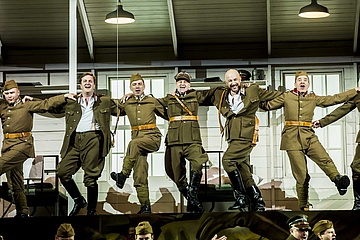
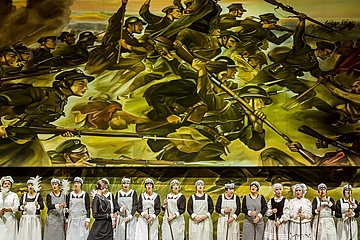
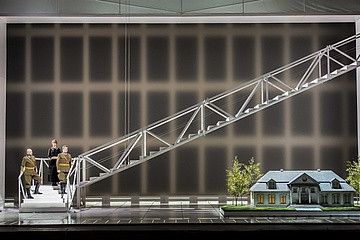
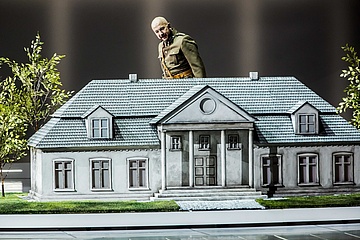
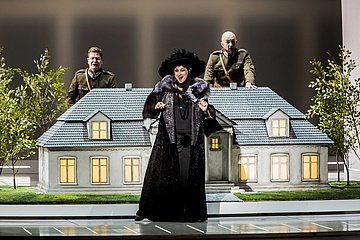
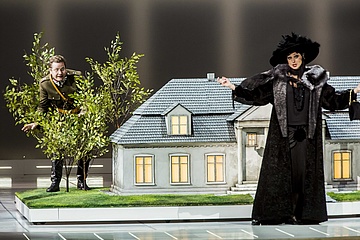
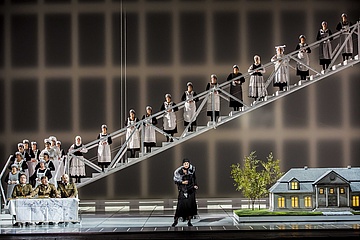
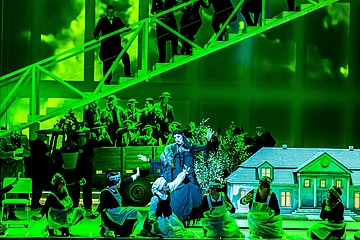
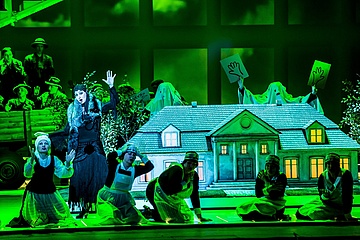
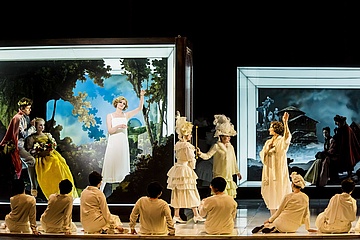
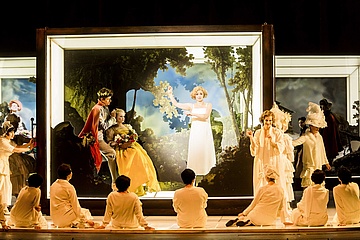
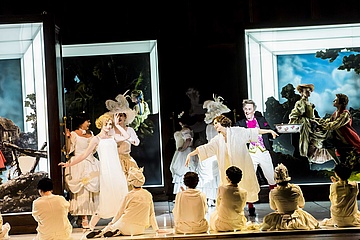
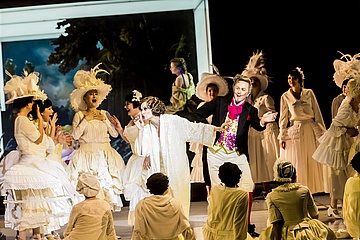
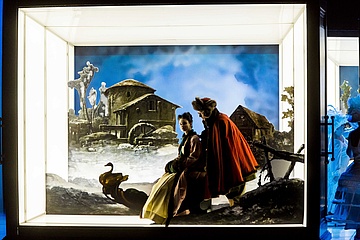
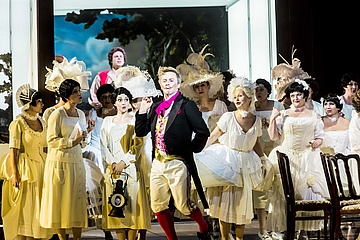
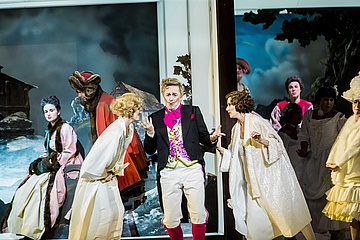
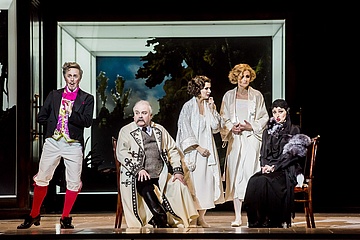
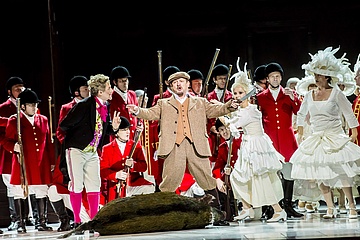
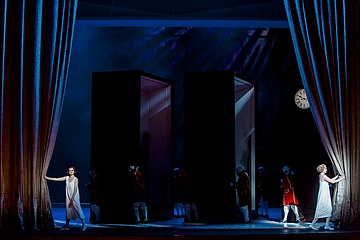
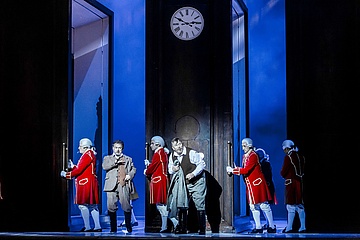
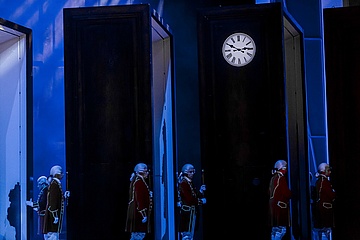
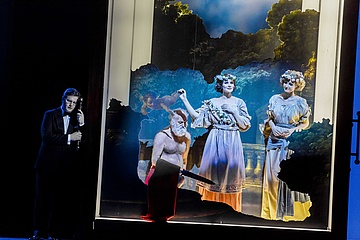
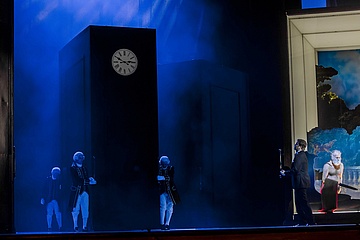
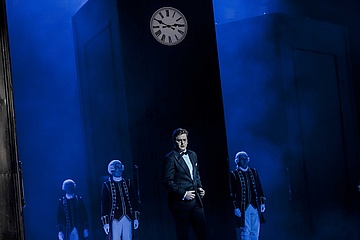
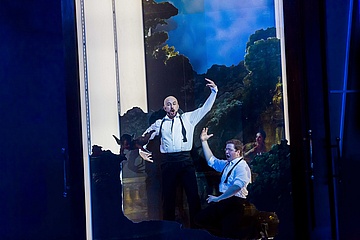
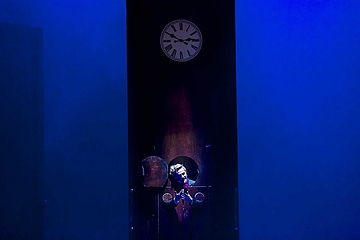
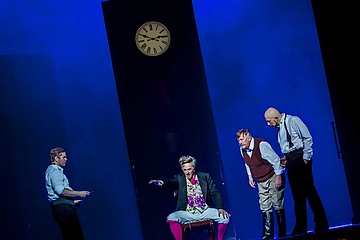
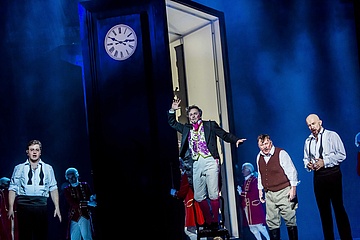
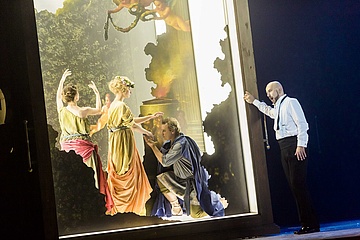
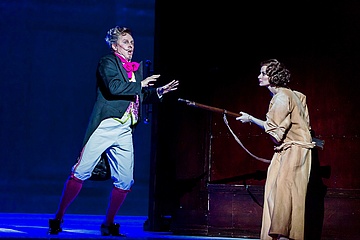
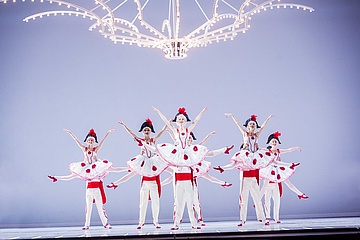
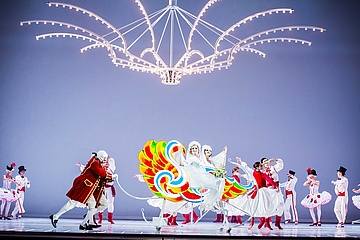
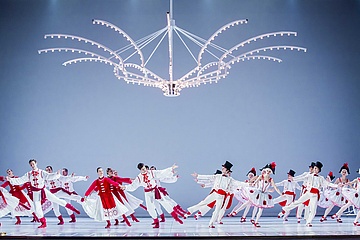
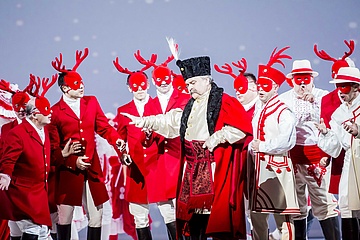
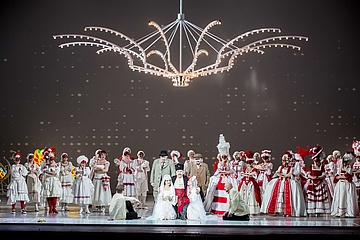
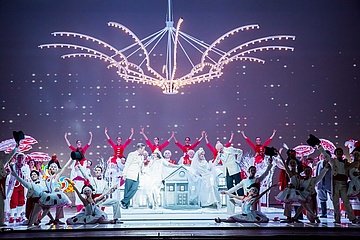
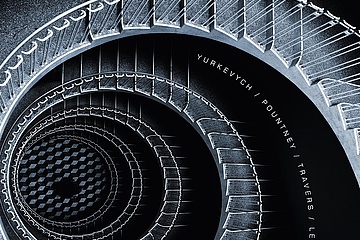
 Adam Kruszewski
Adam Kruszewski  Elżbieta Wróblewska
Elżbieta Wróblewska  Mateusz Zajdel
Mateusz Zajdel  Artur Janda
Artur Janda  Aleksander Teliga
Aleksander Teliga  Magdalena Idzik
Magdalena Idzik ![[Translate to English:]](/fileadmin/_processed_/5/b/csm_damian_wilma_2024_-_kwadrat_bf794b4cfc.jpg) Damian Wilma
Damian Wilma ![[Translate to English:]](/fileadmin/_processed_/0/2/csm_anna_borucka_2025_-_kwadrat_ef9111580e.jpg) Anna Borucka
Anna Borucka  Zenon Kowalski
Zenon Kowalski  Katarzyna Zimak
Katarzyna Zimak  Dominik Sutowicz
Dominik Sutowicz  Anna Jeruć
Anna Jeruć  Stanislav Kuflyuk
Stanislav Kuflyuk  Ewa Majcherczyk
Ewa Majcherczyk  Zbigniew Malak
Zbigniew Malak  Paweł Skałuba
Paweł Skałuba  Jerzy Butryn
Jerzy Butryn  Anna Lubańska
Anna Lubańska  Łukasz Konieczny
Łukasz Konieczny  Zbigniew Macias
Zbigniew Macias  Anna Bernacka
Anna Bernacka  Grzegorz Nowak
Grzegorz Nowak ![[Translate to English:]](/fileadmin/_processed_/d/f/csm_rte-WNO_Artistic_Director_David_Pountney._Photo_credit__Richard_H_Smith_kwadrat_65b5afbeda.jpg) David Pountney
David Pountney  Leslie Travers
Leslie Travers  Marie-Jeanne Lecca
Marie-Jeanne Lecca ![[Translate to English:]](/fileadmin/_processed_/f/4/csm_Emil_Wesolowski_fot._Pawel_Roslon_mini__e5d48cae55.jpg) Emil Wesołowski
Emil Wesołowski  Fabrice Kebour
Fabrice Kebour  Violetta Bielecka
Violetta Bielecka  Mirosław Janowski
Mirosław Janowski 





